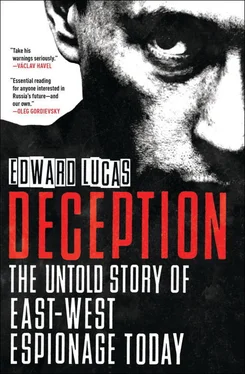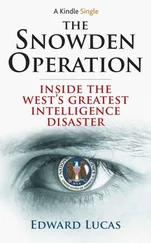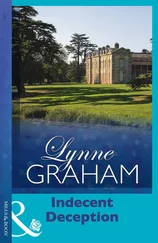Mr Koppel was convinced that this was merely a prelude to his murder (it is easy to imagine the KGB-sponsored news story about a ‘fascist bandit’ being foiled in the act of escape). His captors’ parting words were to remind him that his family remained in Estonia. As his boat chugged through the twilight, the truth dawned. He was indeed being released. As he approached Finnish territorial waters, a speedboat neared. Fearing that it was the Finnish coastguard, Mr Koppel hurriedly dropped his gun over the side of the boat. But the crew of the boat simply waved and passed by. He had returned to the free world. He found a house and made his phone call: Rebane answered. He had clearly been expecting Mr Koppel’s return. Initially, the new arrival was uncertain what account to give. ‘I wasn’t sure what to tell them – I was in this labyrinth of doubts,’ he says. He was also worried that the KGB had a mole in SIS: ‘anything I tell them, he will tell the Russians’.
After a cursory debriefing by SIS, who appeared distrustful of him, he then told Rebane the full story – or at least his side of it. But what was the whole truth? Why had the KGB released someone who would, if he spoke candidly, blow away the cobwebs of deception? One possibility (and to my mind the most likely) is that his release was part of a straight spy swap – the first of the Cold War. Rebane had known for some time that Operation Jungle was blown, and had been in regular radio contact with the bogus partisans. When each side realised that the other no longer believed in the fiction of a serious resistance organisation inside Estonia, it would have been time for straight talking. It may well be that Rebane offered to send back one of the KGB plants in London, in exchange for Mr Koppel.
Another possibility is that the KGB had tried to recruit Mr Koppel. That would explain the hotel-style treatment at the Lubyanka. But he would have been an unlikely plant: with Operation Jungle being wound up, anyone connected with it would be coming under great scrutiny. SIS would be well aware that ‘Karl’ and his partisans had been phoneys all along. Even if he went along with the KGB plan, the likelihood of anyone trusting Mr Koppel with any more secrets was minimal. Indeed, SIS treated him and the other returning agents with suspicion: some of them complained about regular and intrusive surveillance from counter-intelligence officers. Mr Koppel insists, moreover, that the KGB gave him no instructions or contact in London. His name later appeared on a list of fugitives wanted by the Soviet authorities, which suggests that he failed to follow any instructions the KGB had given him.
Until I outlined them to him, Mr Koppel was apparently unaware of the full extent and nature of the deception surrounding his mission. He had not read Red Web . But his faith in Rebane remains undimmed to this day (indeed the legendary Estonian commander was a guest of honour at his wedding in 1960). ‘You told me “take no initiative”,’ he said to his boss wryly. Rebane responded coolly: ‘I am a soldier, not a trained intelligence officer.’ In any case, espionage was the last thing on Mr Koppel’s much-burdened mind. He moved to the countryside, becoming a British citizen, recovering from a near-breakdown and putting all thoughts of Estonia aside. Only in the 1990s did that change. The three surviving Estonians of SIS – Kiik, Koppel and Urm – made themselves known to the newly established Estonian embassy in London. An official there at the time recalls receiving a phone call, in which an anonymous voice asked: ‘How does my Estonian sound? You see I haven’t spoken it for thirty years.’ Along with other veterans of the partisan war, they received military decorations from their reborn country. 46
After intense persuasion SIS also acknowledged its historical debt, inviting the three men to a champagne reception in 3, Carlton Gardens, where the service entertains foreign guests and the eternal ‘Major Halliday’ interviews graduate recruits. [64] bl In past years the recruitment interview has been conducted by men of varying build, height and hair colour. All introduced themselves as ‘Major Halliday’.
It is just a stone’s throw from the Ryder St office where their controllers had botched and bungled their mission. In the presence of senior British and Estonian officials, they were given replica statues of the commando memorial at Auchtermuchty on the slopes of Ben Nevis, where the agents of Operation Jungle had trained forty years previously. The figurine shows three men in pre-war battledress, bunched together, alert and watching, over an inscription reading ‘United We Conquer’. [65] † The statues are available from gift shops, at a price of around £200 (including postage and packing). A solid silver version is also available, but was presumably thought too expensive.
SIS added ‘Never Forgotten’. After Britain’s amnesia towards its debts in the Baltic, that could seem like wishful thinking. It is all the more poignant given the efforts that the authorities in Estonia were making to help British intelligence, for the third time in ninety years.
In early 1990, an unusual delegation began touring the spy agencies of Western Europe. It comprised the senior security officials of Czechoslovakia – a country where communist power had collapsed only weeks previously. The scruffy trio were more at home in the smoky cafés of the dissident cultural scene than in the taciturn and besuited world of espionage. But the message they bore from their country’s new leadership was simple: a request for the greatest possible cooperation. Not only did they want help in building up new security and intelligence services, untainted by the communist past. They wanted defectors to return in glory, and for any of their citizens working undercover for Western spy agencies to come out into the open and receive medals.
The world had turned upside down. Security and intelligence had been both the citadel of communist power and the spearhead of outside attempts to breach it. Now the communist system’s spooks were defeated while their Western counterparts blinked bewildered over the silent battlefield. Shortly after the ‘Velvet Revolution’ in November 1989 I was one of the first outsiders to visit the Prague headquarters of the feared StB secret police. [66] bm For Státní bezpečnost (State Security).
I had been the only newsman in Prague for the English-speaking media before the collapse of the regime. The building (a former theological college confiscated by the communists) had long been a source of fascination to me. It lay on the way to the airport, with a roof marked by distinctive antennae; the headquarters of a KGB front organisation was near by. It had a grim air to it: this was where the nastiest people in the country cooked up their witches’ brew of blackmail and betrayal, where husbands and wives were set to spy on each other under threats of reprisals against their children, each wracked by guilt but believing that doing so was a necessary sacrifice. I had heard tales of torture in the cellars, and of the ever-present role of ‘advisers’ from Moscow – the ultimate bosses of the Czechoslovak communist state. Only weeks before any attempt to enter the building would have resulted in instant arrest. Now the regime was defeated; instead of scurrying past, I marched boldly in.
Our glum guide showed little enthusiasm for his task. All other employees, he droned, had been sent home to await instructions. I slipped away from the tour party of other nosy Westerners and roamed the unguarded offices, opening doors at random and browsing through files and card indexes. I hoped, not very realistically, to find some trace of the StB officers who in the past year had snooped on me, tried to recruit me, and bullied my friends. But the echoing corridors were not as deserted as they seemed. Around one corner I found an armoured door with an intercom. I pressed it. A peremptory voice asked me to identify myself. ‘I’m a British journalist – can I come in?’ I replied cheekily. Lucifer in the Vatican would have had a less frosty reception. Seconds later, my hosts crossly whisked me away. ‘He was trying to get to the cipher room,’ one muttered to the other. I was puzzled. If the service was dead, who was sending messages, and about what? As I was to find out, toppling communism was one thing, uprooting its structures another.
Читать дальше












